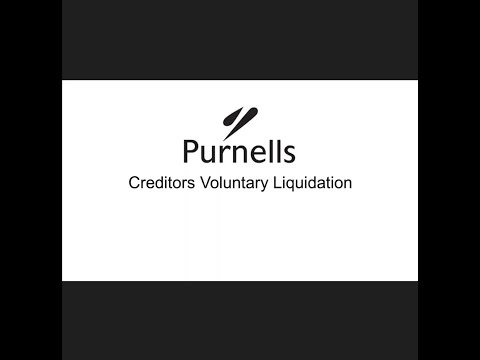Creditors Voluntary Liquidation (CVL) Advice
Understanding Creditors Voluntary Liquidation (CVL)
What is a Creditors Voluntary Liquidation?
A Creditors Voluntary Liquidation or CVL is the most commonly used liquidation process in the UK and is where the directors "voluntarily" arrange to place their company into liquidation as opposed to having their company "compulsorily" wound up by the Court. After taking advice you would instruct a Licensed Insolvency Practitioner to work with you to sign the necessary documents and notify the creditors to place your company into Creditors Voluntary Liquidation.
A Creditors Voluntary Liquidation or CVL is an insolvency process designed to bring the life of an insolvent company to an end in a quick and efficient manner.
A company is insolvent if:
- It cannot pay its debts as and when they fall due, this is called the Cashflow Test, or
- It's liabilities exceed its assets, this is called the Balance Sheet Test.
To end its life voluntarily an insolvent company must use a Creditors Voluntary Liquidation instead of a Members Voluntary Liquidation.
A Creditors Voluntary Liquidation is the most common form of liquidation and a planned CVL of your company can, perhaps surprisingly, realise huge financial benefits - some of which are listed below. The procedure is commenced by you as the director and shareholder of your limited company and not by your company's creditors.
For more information, see our "What is a Creditors Voluntary Liquidation" page, or navigate to a CVL topic on the menu to the right.
How Does Creditors Voluntary Liquidation Work?
- Board Meeting: The directors must convene a board meeting to discuss the financial situation and the need for liquidation.
- Report to Creditors: A report, which is called a SIP 6 Report, is prepared outlining the company's debts and assets. This report, together with a Statutory Statement of Affairs is then presented to the creditors.
- Shareholders Meeting: A shareholders meeting is called to pass the necessary resolutions to place the Company into Creditors Voluntary Liquidation.
- Decision Procedure: A decision procedure of creditors is called, which could either be Deemed Consent, or a Virtual Meeting, where creditors decide who should be appointed as the Liquidator.
- Appointment of a Liquidator: Once approved, a licensed insolvency practitioner is appointed as the liquidator. The liquidator takes control of the company's assets and manages the liquidation process.
- Asset Realisation: The liquidator sells the company’s assets and uses the proceeds to pay a dividend to creditors.
- Dissolution: After all assets are sold and creditors are paid, the company is formally dissolved.
Benefits of a Creditors Voluntary Liquidation
The benefits of a CVL include:
- Professional Management - Experienced and licensed insolvency practitioners handle the entire process.
- Relief from Creditor Pressure - Directors are relieved from the pressures of creditor demands. This allows them time to deal with other and more important matters.
- Redundancy - All employees will be entitled to claim redundancy from the Redundancy Payments Service. If directors are also considered employees, they may be able to claim as well.
- Asset Realisation - The liquidator will sell the Company's assets and the sale proceeds are distributed to the creditors.
- Legal Compliance - The Insolvency Practitioner will ensure that all legal obligations are met, therefore protecting the directors from potential legal issues.
A Guide to Creditors Voluntary Liquidation
Purnells have developed a Guide to Creditors Voluntary Liquidations for directors of insolvent companies, which will assist directors in obtaining a better understanding of the process.
Continuation of the Business
It is sometimes possible for there to be a Phoenix Company, to take over the business of the Company that has been placed into Liquidation.
If you wish for a new company (NewCo) to take over the business of the liquidated company, planning and preparation prior to placing the Company into Creditors Voluntary Liquidation is vital. Our Insolvency Practitioners can provide the necessary advice before commencing any action to ensure that your new company does not fall foul of Sections 216 and 217 of The Insolvency Act 1986.
We can also arrange for the valuation of the Company's assets, to allow the sale and transfer to the NewCo, once the Company has been placed into Liquidation. We can also assist with the preparation of the sales contract, to enable the sale to take place.
Due to the TUPE Regulations (Transfer of Undertakings (Protection of Employment) Regulations 2006) care needs to be taken when there are employees who may be taken on by the Phoenix Company, which also needs to be planned and discussed.
Planning & Preparation
A short factual review with a Licensed Insolvency Practitioner prior to taking the decision to place your limited company into liquidation provides you (as a director) with a planning opportunity. The plan could both improve the position for creditors and enable you to prepare for a new business existence. The plan could include elements of some or all of the following:
- A re-start company, also called a Phoenix Company (if required) or
- Reducing staff numbers or
- A company restructure which eliminates the existing debt burden of VAT, PAYE, Corporation Tax, trade creditors etcetera or
- Closing unprofitable units or
- Leaving behind burdensome property leases or
- Leaving behind costly hire purchase, lease purchase, leasing, rental or contract hire agreements, or
- Eliminating unprofitable contracts
To read a case study of a CVL followed by a resurrected phoenix company please click on the link below:
- liquidation advice - CVL case study
Frequently Asked Questions about CVL
1. What happens to the directors after a CVL?
Directors powers cease once a Liquidator is appointed, although they may be required to assist in the liquidation process. The Liquidator will take charge of the Company.
2. Can I start a new business after a CVL?
Yes, directors can start a new business. The key issue is whether the new business has a similar name, therefore it is essential to understand the rules and restrictions on reusing a company's name.
3. How long does the CVL process take?
The duration varies depending on the complexity of the case, but it typically takes between six months to a year to complete the process.
4. What costs are involved in a CVL?
Costs vary depending on the complexity of the case, including professional fees for the insolvency practitioner, agents fees for selling assets, and sometimes legal fees, if a sales contract is required. These costs are usually covered by the sale of the company's assets and can be discussed with you during the initial meeting.
Contact Us for a Free Consultation
Please contact any of our Insolvency Practitioners on 01326 340 579 who would be more than happy to discuss Creditors Voluntary Liquidations with you. Alternatively, please use the Contact Us form below and a member of our team will contact you to arrange an appointment with one of our Licensed Insolvency Practitioners at your convenience.
Would you like us to give you a call?
Fill in the form and we'll give you a call as soon as we can to discuss your needs in a free initial consultation with a Licensed Insolvency Practitioner. Alternatively give us a call on 01326 340579 if there is an urgency to your needs.
The information provided will be used solely to contact you and any information you provide will be held in accordance with our firm's privacy policy, and not used for marketing purposes.







